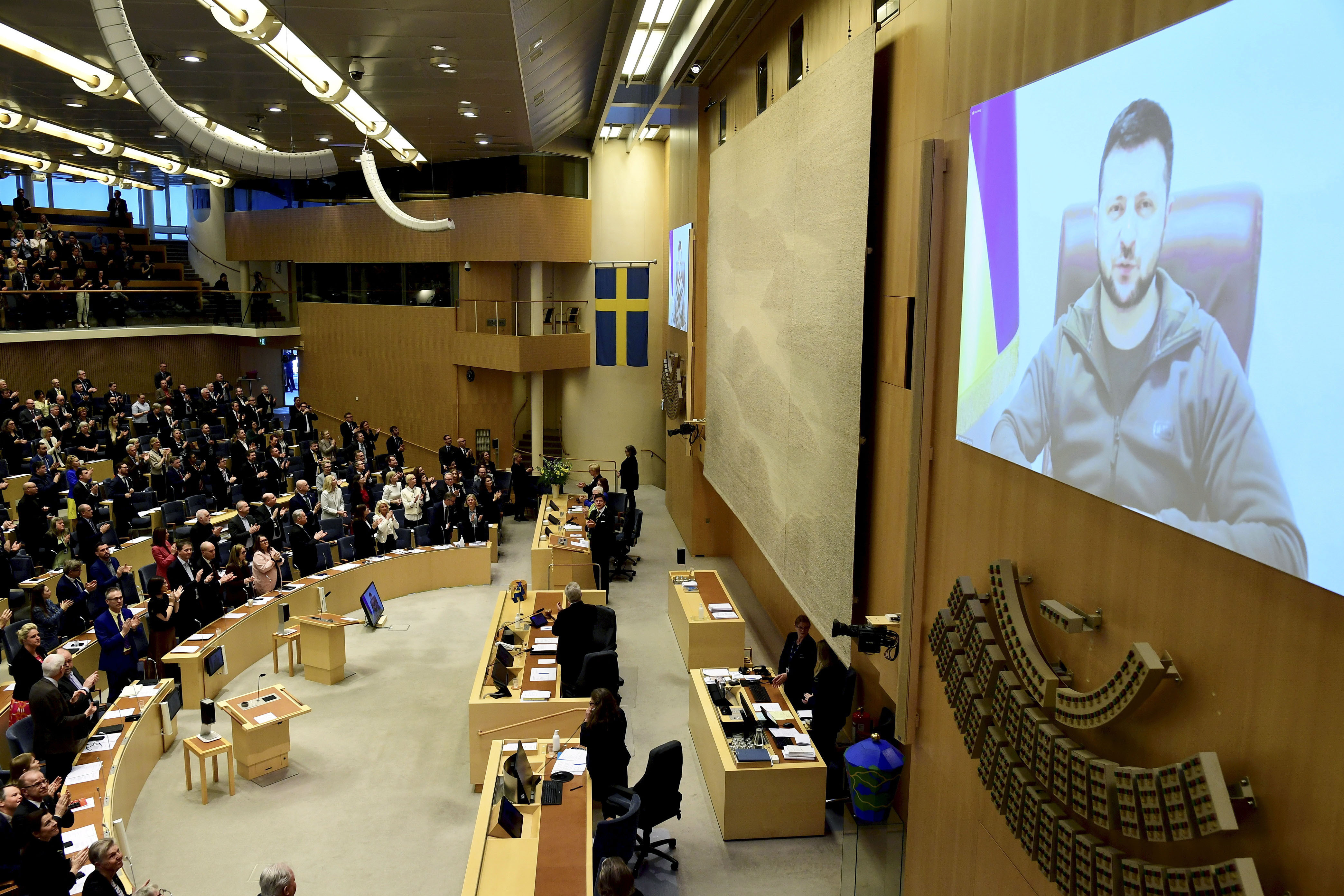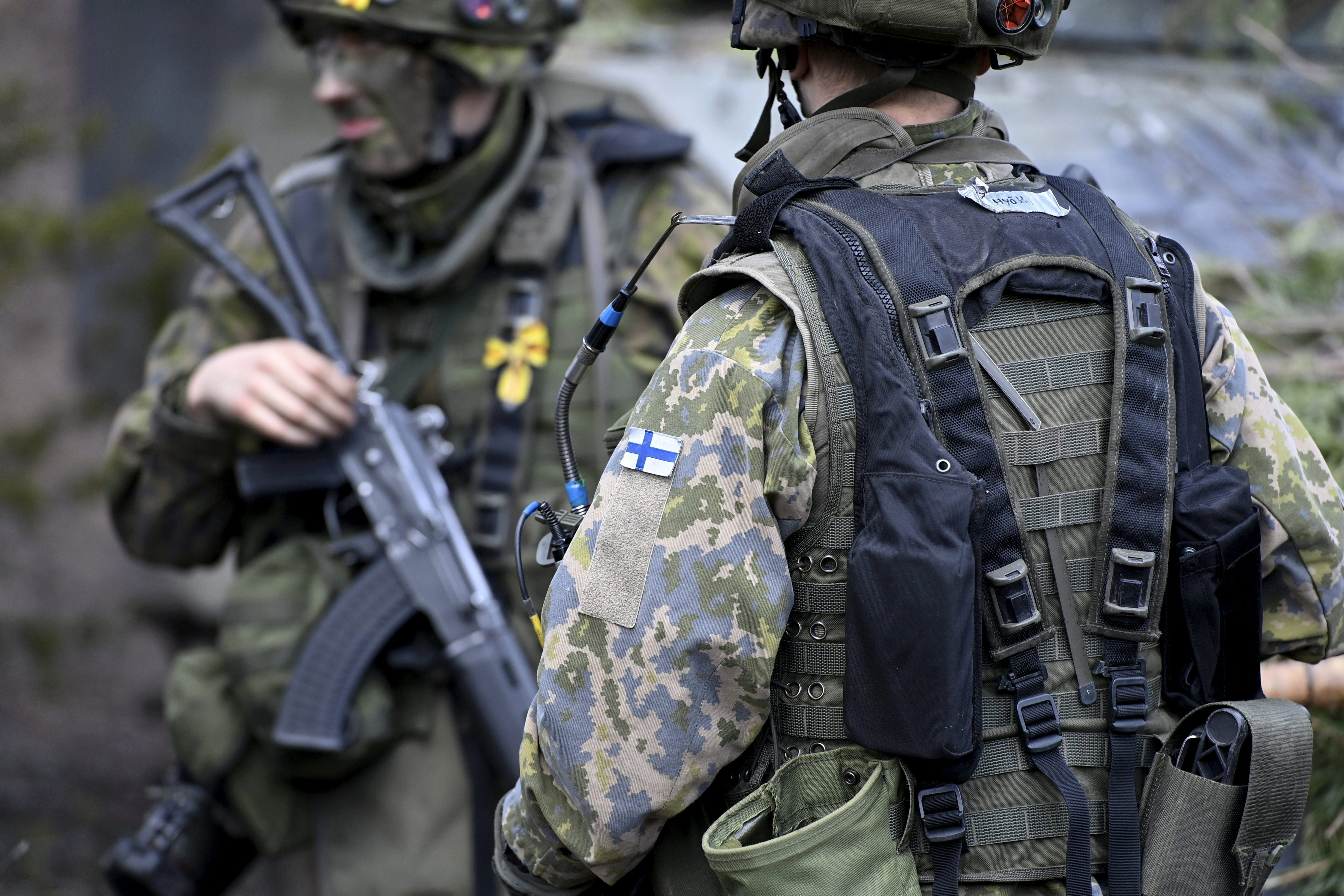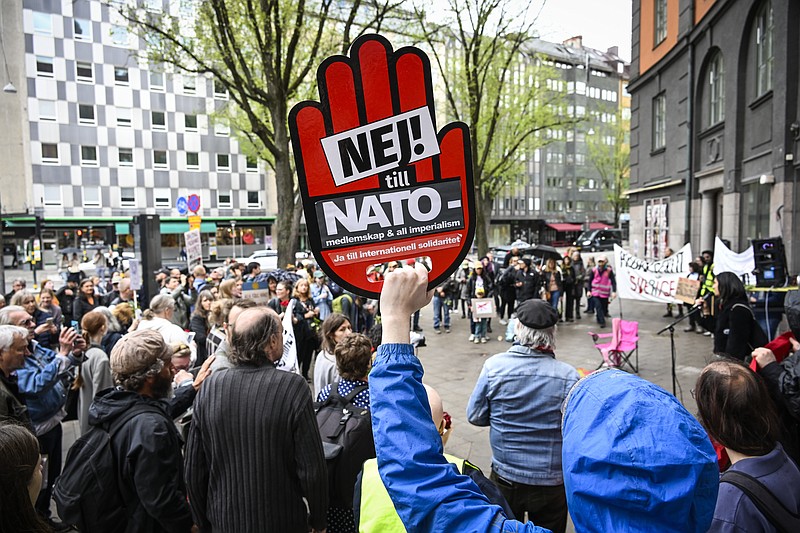BERLIN -- With Finland and Sweden inching closer to applying for NATO membership amid Russia's war in Ukraine, the list of "neutral" or nonaligned countries in Europe appears poised to shrink.
Security concerns over the war have changed the calculus for Finland and Sweden, and caused other traditionally "neutral" countries to rethink what that term really means for them.
"This is the key thing about neutrality: It means different things to different people," said historian Samuel Kruizinga of the University of Amsterdam.
While European Union members are committed to coming to each other's defense in case of an external attack, the pledge has largely remained on paper, as NATO's might overshadows the bloc's own notions of collective defense.
Arguably the most renowned neutral country in Europe, Switzerland has enshrined neutrality in its constitution, and Swiss voters decided decades ago to stay out of the EU. But its government has been at pains in recent weeks to explain its concept of neutrality after lining up behind EU sanctions against Russia.
Its government has already asked Germany not to pass along Swiss military equipment to Ukraine.
The populist, right-wing party that holds the largest bloc of seats in the Swiss parliament has been hesitant about further measures against Russia, and the Swiss are protective of their role as mediator for rival states and as a hub of humanitarian action and human rights.
Austria's neutrality is a key component of its modern democracy: As a condition of Allied forces leaving the country and its ability to regain independence in 1955, Austria declared itself militarily neutral.
Since the start of Russia's war in Ukraine, Chancellor Karl Nehammer has struck a fine balance with regard to Austria's position. He has maintained that the country has no plans to change its security status, while at the same time declaring that military neutrality doesn't necessarily mean moral neutrality -- and that Austria strongly condemns Russia's actions in Ukraine.
In Ireland, Prime Minister Micheal Martin summed up the country's position earlier this year as: "We're not politically neutral, but we're military neutral."
Ireland has imposed sanctions on Russia and sent nonlethal aid to Ukraine in response to the invasion. Ireland has also been participating in EU battlegroups -- part of the bloc's efforts to harmonize its militaries.
Malta's constitution says the small Mediterranean island is officially neutral, hewing to a policy of "nonalignment and refusing to participate in any military alliance." A poll commissioned by the Foreign Ministry published two weeks before Russia's invasion found a majority of respondents supported neutrality -- and only 6% were against it.
The Times of Malta newspaper on Wednesday reported that Irish President Michael Higgins, during a state visit, stressed the idea of "positive" neutrality and joined Maltese President George Vella in condemning the war in Ukraine.
Cyprus' relations with the United States have grown considerably over the last decade, but any idea of NATO membership remains off the table -- for now.
The ethnically split island nation's president said Saturday that "it's much to early" to even contemplate such a move that would invariably meet rival Turkey's strong opposition.
Many Cypriots -- particularly those on the political left -- continue to blame NATO for the island's de facto partition after Turkish forces invaded in the mid-1970s. Turkey was a NATO member at the time -- and the alliance did nothing to prevent the military action.
Stalwart NATO member Britain has two sovereign military bases on Cyprus, which host a sophisticated listening post on the east coast that is co-operated by U.S. personnel.
Cyprus also wants to maintain a veneer of neutrality, and has allowed Russian warships to resupply at Cypriot ports, although that privilege was suspended after war in Ukraine began.
Information for this article was contributed by Menelaos Hadjicostis, Jill Lawless, Emily Schultheis and Frances D'Emilio of The Associated Press.
 FILE - NATO Secretary General Jens Stoltenberg, center, participates in a media conference with Finland's Foreign Minister Pekka Haavisto, left, and Sweden's Foreign Minister Ann Linde, right, at NATO headquarters in Brussels, Jan. 24, 2022. Security concerns over Russia’s ongoing invasion of Ukraine changed the calculus for Finland and Sweden which have long espoused neutrality and caused other traditionally “neutral” countries to re-think what that term really means for them. (AP Photo/Olivier Matthys, File)
FILE - NATO Secretary General Jens Stoltenberg, center, participates in a media conference with Finland's Foreign Minister Pekka Haavisto, left, and Sweden's Foreign Minister Ann Linde, right, at NATO headquarters in Brussels, Jan. 24, 2022. Security concerns over Russia’s ongoing invasion of Ukraine changed the calculus for Finland and Sweden which have long espoused neutrality and caused other traditionally “neutral” countries to re-think what that term really means for them. (AP Photo/Olivier Matthys, File) FILE - Flags flutter in the wind outside NATO headquarters in Brussels, Feb. 7, 2022. With Finland and Sweden taking steps to join NATO, the list of “neutral” countries in Europe appears poised to shrink. Security concerns over Russia’s ongoing invasion of Ukraine changed the calculus for Finland and Sweden which have long espoused neutrality and caused other traditionally “neutral” countries to re-think what that term really means for them. (AP Photo/Olivier Matthys, File)
FILE - Flags flutter in the wind outside NATO headquarters in Brussels, Feb. 7, 2022. With Finland and Sweden taking steps to join NATO, the list of “neutral” countries in Europe appears poised to shrink. Security concerns over Russia’s ongoing invasion of Ukraine changed the calculus for Finland and Sweden which have long espoused neutrality and caused other traditionally “neutral” countries to re-think what that term really means for them. (AP Photo/Olivier Matthys, File) FILE - Ukraine's President Volodymyr Zelenskyy receives a standing ovation as he addresses Sweden's parliament via video link, in Stockholm, March 24, 2022. Security concerns over Russia’s ongoing invasion of Ukraine changed the calculus for Finland and Sweden which have long espoused neutrality and caused other traditionally “neutral” countries to re-think what that term really means for them. (Paul Wennerholm/TT News Agency via AP, File)
FILE - Ukraine's President Volodymyr Zelenskyy receives a standing ovation as he addresses Sweden's parliament via video link, in Stockholm, March 24, 2022. Security concerns over Russia’s ongoing invasion of Ukraine changed the calculus for Finland and Sweden which have long espoused neutrality and caused other traditionally “neutral” countries to re-think what that term really means for them. (Paul Wennerholm/TT News Agency via AP, File) FILE - Finnish soldiers take part in the Army mechanised exercise Arrow 22 exercise at the Niinisalo garrison in Kankaanpaa, Western Finland, on May 4, 2022. Security concerns over Russia’s ongoing invasion of Ukraine changed the calculus for Finland and Sweden which have long espoused neutrality and caused other traditionally “neutral” countries to re-think what that term really means for them. (Heikki Saukkomaa./Lehtikuva via AP, File)
FILE - Finnish soldiers take part in the Army mechanised exercise Arrow 22 exercise at the Niinisalo garrison in Kankaanpaa, Western Finland, on May 4, 2022. Security concerns over Russia’s ongoing invasion of Ukraine changed the calculus for Finland and Sweden which have long espoused neutrality and caused other traditionally “neutral” countries to re-think what that term really means for them. (Heikki Saukkomaa./Lehtikuva via AP, File)